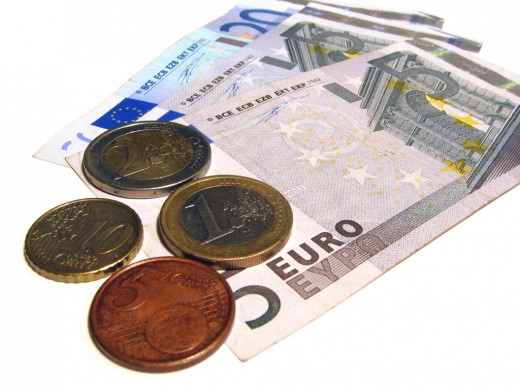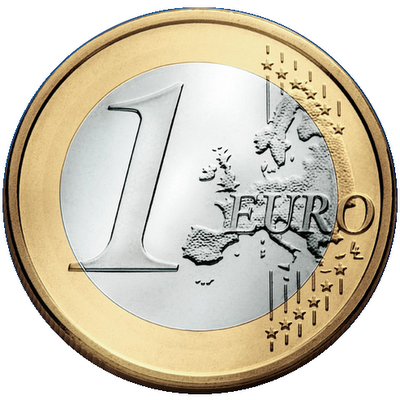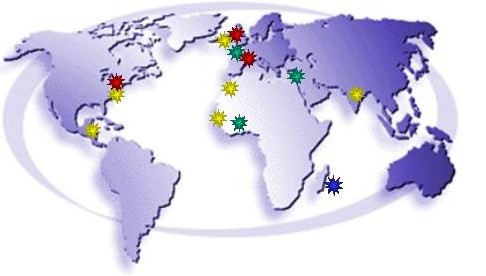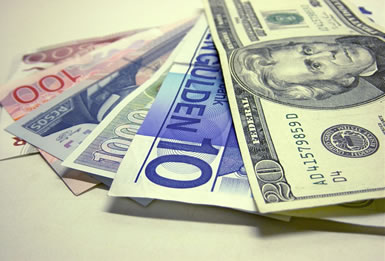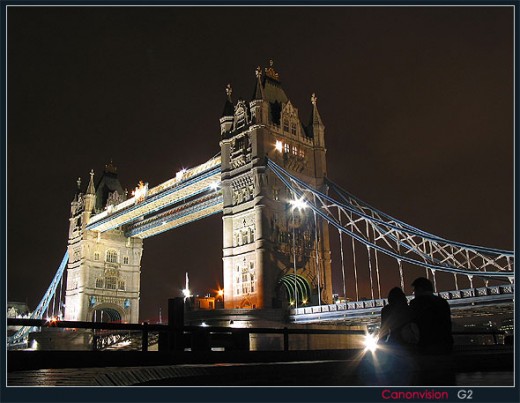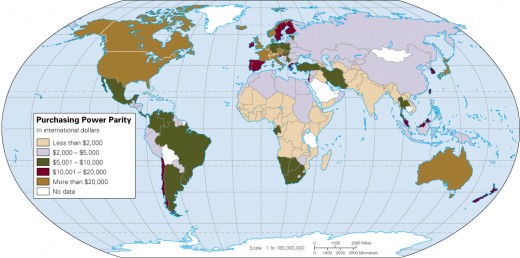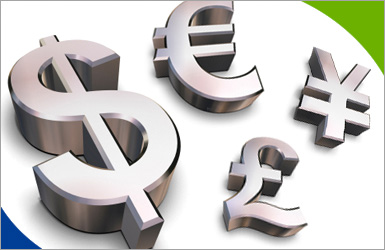- HubPages»
- Personal Finance»
- Financial Planning
Updated on July 1, 2017
Contact Author
Will there be anything called a foreign exchange market in this world, If there is only one currency in this world? Then what about foreign exchange or foreign exchange rate? There won't be anything like that. But in reality, many countries have their own national currencies like Dollar, Pound, Euro, Ruble, Yuan, Rupee and many more. Then there should be somewhere to facilitate making payments and transferring funds between countries. Also someone should facilitate the transferring of purchasing power from one currency to another and also to determine at what rate one currency must be surrendered in order to acquire another currency in making payments or in transferring funds. It is the foreign exchange market that plays the most significant role of providing machinery for all these transactions between countries.
What is foreign exchange and why do we need it?
Almost every country has its own national currency or in other words, its own monetary unit. It may be Dollar or Euro or Rupee or Peso or Lira or whatever, it is used for making payments and receiving payments within its own borderlines. But they all need foreign currencies for payments across these national borders. Therefore, in any country, whose residents carry out business abroad or make financial transactions with people in other countries, there must be a certain mechanism for providing access to foreign currencies. Then payments can be made by people in those countries in a form acceptable to foreigners. In other words, there is a need for exchange of currencies with foreigners or foreign exchange transactions that exchange one currency for another.
So, foreign exchange means money or currency of one country denominated in the currency of another nation or group of nations. As such, within the United States, any money denominated in any currency other than the U.S. dollar is, “foreign exchange.”
Exchange Rate
The exchange rate is the number of units of one nation’s currency that must be surrendered in order to acquire one unit of another nation’s currency and therefore exchange rate is simply a price. There is an exchange rate for the currency Dollar in U.S. There is an exchange rate for every other national currency traded in that market.
Although we talk about an exchange rate for the Dollar in the market, there is no single or unique dollar exchange rate in the market. The market price of a particular commodity is determined by the interaction of buyers and sellers in that market. Likewise ,a market exchange rate between two currencies is determined by the interaction of the official and private participants in the foreign exchange market.
Foreign Exchange Market
In a foreign exchange transaction a party purchases a quantity of one currency by paying a quantity of another currency. The purpose of the foreign exchange market is to help international trade and investment. A foreign exchange market helps businesses to convert one currency to another. For example, it facilitates a U.S. business to import European goods and pay in Euros even though the business's income is in U.S. dollars.
Therefore, Foreign exchange market or foreign currency market or forex market trades currencies and lets banks and other institutions easily buy and sell currencies.
The foreign exchange market is the largest and most liquid financial market in the world. Traders in the foreign exchange market include large banks, central banks of countries, currency speculators, corporations, governments, and other financial institutions. The average daily volume in the global foreign exchange and related markets is continuously growing.
History of foreign exchange
The modern foreign exchange market started in 1970s when countries gradually switched to floating exchange rates from the fixed exchange rate system. According to the Bretton Woods Agreement in 1944, each country had an obligation to adopt a monetary policy which maintained the exchange rate of its currency within a fixed value in terms of gold. This is called fixed exchange rate system. This system collapsed in 1971, after the United States unilaterally terminated convertibility of the dollar to gold.
A floating exchange rate is a type of exchange rate system where a currency's value is allowed to fluctuate according to the conditions in the foreign exchange market. A currency that uses a floating exchange rate is known as a floating currency. However, in cases of extreme appreciation or depreciation, the central bank of that particular country will normally intervene to stabilize the currency. Thus, the exchange rate system of floating currencies is known as a managed float. The central bank might allow a currency price to float freely between an upper and lower level. Management by the central bank may take the form of buying or selling large lots of currency in order to provide support or resistance.
Participants in the foreign exchange market
The participants in the foreign exchange market may be called as a diverse group. Some of the buyers and sellers may be involved in conducting international transactions for the purchase or sale of goods for sale or other assets like plant and equipment. Some may be engaged in portfolio investment, dealing in stocks and bonds and other financial assets across borders , while others may be in the money market trading short-term debt instruments internationally. The time period for investment may be few minutes to several years depending on the type of participants. Whether their motive is investing, hedging, speculating, arbitraging, paying for imports, or seeking to influence the rate, they are all part of the aggregate demand for and supply of the currencies involved. They all play a role in determining the market exchange rate.
Mechanism of executing a foreignexchange transaction
Executing aforeign exchange transaction requires two transfers of money value in opposite directions.It engages the payment and settlement systems of both nations and those systemsplay a key role in the operations of the foreign exchange market. Various formsof payment are legally acceptable in the United States. Payments can be made bycash, cheque, automated clearing house, and electronic funds transfer . Each ofthese accepted forms of payment has its own settlement techniques andarrangements.
Most of the paymentsin the United States are still made with cash or cheques. However, the electronicfunds transfer systems account for more than 80 percent of the value ofpayments in US. Therefore, the electronic funds transfer systems represent akey component of the
payment andsettlement systems. It executes the inter-bank transfers between dealers in theforeign exchange market. The two electronic funds transfer systems operating inthe United States are CHIPS (Clearing House Interbank Payments System) run by the New York Clearing House, and FEDWIREa system run by the Federal Reserve.
Similar to FEDWIREand CHIPS in the United States, other countries also have large-value interbankfunds transfer systems such as CHAPS (Clearing House Association PaymentsSystem) in United Kingdom, EAF in Germany.
Size of the foreign exchange market
The largestamount of foreign exchange trading takes place in the United Kingdom, even thoughthe pound sterling is less widely traded in the market. United Kingdom accountsfor about 32 percent of the global total turnover and the United States ranks secondwith about 18 percent, and Japan is third with 8 percent and thereafter comesSingapore with 7 percent.
The foreignexchange market is the largest and most liquid market in the world. U.S. Governmentsecurities market is the world’s second largest market. The worldwide turnoverof foreign exchange market is several times the level of turnover in the U.S. Governmentsecurities market.
Main participants in the foreignexchange market
Foreign Exchange Dealers
The foreign exchangemarket consists of a number of major dealer institutions mostly commercialbanks and investment banks. These dealer institutions are active in foreignexchange, trading with customers and with each other. They are geographically locatedin numerous financial centers around the world. Wherever located, these institutionsare linked to, and in close communication with each other. Foreign exchangetrading takes place among dealers and other market professionals in a largenumber ofindividual financial centers such as London, New York, Chicago, Los Angeles, Tokyo, Singapore,Frankfurt, Paris and many others.
Financial and Non-financial customers
Financial and non-financialcustomers include:
- smaller commercial banks and investmentbanks who are not major dealers
- firms and corporations who buy or sellforeign exchange in the process of buying or selling products and services
- managers of money funds, mutual funds,hedge funds, and pension funds etc.
For these customersthe foreign exchange transaction is part of their payments process and a means ofcompleting certain commercial, investment, speculative, or hedging activity.
Central Banks
Central banksof all countries participate in foreign exchange markets to a certain extentand theiroperations can be of great importance to those markets. Intervention by Centralbanks to influence foreign exchange market conditions or the exchange rate, is a critically important aspect ofeach central bank’s foreign exchange transactions. However, the interventionpractices of individualcentral banks differ greatly with respect to objectives, approaches, amounts and tactics.
Many centralbanks serve as their government’s principal international banker and theyhandle most of the foreign exchange transactions for the government as well asfor other public sector enterprises. A central bank may be operating in theforeign exchange market in order toacquire or dispose of foreign currencies for some government procurement or investmentpurpose. A central bank may also participate to accumulate, reallocate among currencies,or reduce its foreign exchange reserve balances.
Brokers
The role of abroker is to bring together a buyer anda seller in return for a fee or commission.
A broker isan intermediary who acts as agent for one or both parties in the transactionand the broker does not commit capital. The broker relies on the commission receivedfor the service provided. Brokers do not take positions or face the risk ofholding an inventory of currency balances subject to exchange rate fluctuations.In over-the-counter trading, the activity of brokers is confined to the dealersmarket. Brokers handle about one quarter of all U.S. foreign exchangetransactions in the OTCmarket.
The factors that determine Foreign Exchange Rates
Economic factors
- Fiscal Policy and Monetary Policy of the government.
- Government budget deficits or surpluses
- Balance of trade levels and trends
- Inflation levels and trends
- Economic growth and health
- Productivity of an economy
Political conditions
- Internal politicalconditions
- Regional politicalconditions
- International politicalconditions
Market psychology
- Unsettling international events can lead to investors seeking a safe haven.
- Currency markets often move in visible long-term trends
- The tendency for the price of a currency to reflect the impact of a particular action before it occurs.
- economic numbers are important to market psychology and may have an immediate impact on short-term market moves.
- Technical trading considerations
Theories that explain the fluctuations in foreignexchange rates
- International parity conditions: Relative Purchasing Power Parity, interest rate parity, DomesticFisher effect, International Fisher effect.
- Balance of payments model
- Asset market model
Financial instruments
Spot
A spottransaction is a straightforward exchange of one currency foranother. The spot rate is the current market price. It is a two-daydelivery transaction except in the case of trades between the US Dollar,Canadian Dollar, Turkish Lira and Russian Ruble, which settle the next businessday. It represents a direct exchange between two currencies.
Forward
Here, money does not actually change hands until some agreed upon futuredate. A buyer and seller agree on an exchange rate for any date in the future,and the transaction occurs on that date, regardless of the market rate on thatday. The duration of the trade can be a one day, a few days, months or years.Usually the date is decided by both parties.
Future
Foreign currency futures are exchange traded forward transactions withstandard contract sizes and maturity dates. Futures are standardized contracts andare usually traded on an exchange. The average contract length is roughly 3months. Futures contracts are usually inclusive of any interest amounts.
Swap
The most common type of forward transaction is the currencyswap. In a swap, two parties exchange currencies for a certain length oftime and agree to reverse the transaction at a later date. These are notstandardized contracts and are not traded through an exchange.
Option
A foreign exchange option is a derivative where the owner has the right butnot the obligation to exchange money denominated in one currency into anothercurrency at a pre-agreed exchange rate on a specified date.

